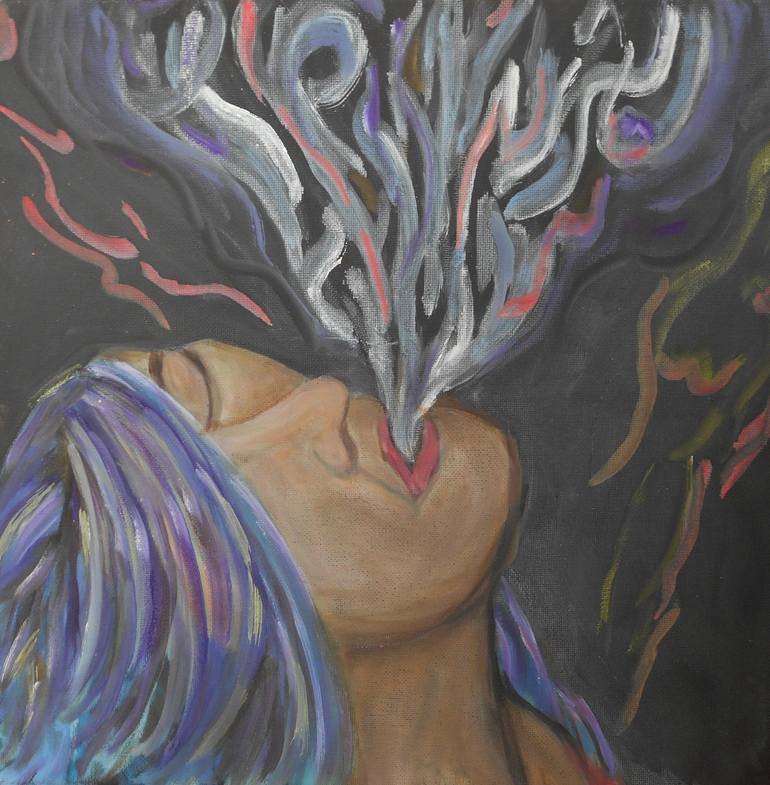
It’s a terrible thing to be naked and without shelter. All of us long to be clothed.
Driven men confuse their obsessions with having a demon—that’s so shallow. That’s not what a demon is.
A demon is an entity with a personality. He was once clothed with light, but now is naked.
If necessary, he will wrap himself in desert dust, or enter an animal—he will do anything to be clothed.
Most of all, he prefers to be clothed with a human body he can call his house.
As I said, it’s a terrible thing to be naked and without shelter. And it’s a far more terrible thing to be a host to a fiend.
“He wanted to drown in that woman—possess her so thoroughly they’d merge.”
Tia Myers was one of my most faithful parishioners—she trusted me, so here she was, sitting in my office, for counselling.
“Did your uncle actually say that—did he use those words?”
She sobbed and pressed a wad of Kleenex to her eyes. “He’s obsessed with her. He’s confessed that to me.”
“Tell me what you know of their relationship.”
She sniffled and then held her head up, making a visible effort to control her feelings.
“Uncle Jacob lectures in Psychology at Columbia University—that’s where he met Adelaide Fenton, a lecturer in Contemporary Women’s Literature. He’s forty-five and she’s thirty five and very opposite from him—quite bohemian, as he describes her.”
“Did they see each other socially?”
“Not at first. They’d meet for drinks with other faculty at Sweetwater’s—Well that, and they’d more or less see each other daily in the faculty lounge at Columbia.”
“I see.”
I didn’t, of course—being a priest, my experience with romantic trysts was limited to what I read or viewed—and I was beginning to feel out of my element—until she got to the main reason why she sought me out.
“It all started with their Spring Break trip to New Orleans. Adelaide wanted to see real Louisianan Voodoo and so they went into the French Quarter and she consulted a Voodooist. This man told her my uncle was obsessed with her and was using astral projection to come into her room at night.”
“Was your uncle involved with the occult?”
She hesitated before answering. “He was years ago, but as far as I know, he abandoned it.”
“So, what happened when Adelaide told your uncle about the Voodooist?”
“He denied the whole thing—laughed it off. They came back to New York and my uncle figured the episode was forgotten—but it wasn’t. Adelaide began experiencing night terrors and confided to other faculty members that she was being mentally stalked by my uncle.”
I whistled softly, shocked by her words. “That’s a little bizarre.”
“Adelaide broke off relations with my uncle—refused even to talk to him. It got very uncomfortable, especially at social engagements when their colleagues gathered.”
“I can imagine that would be awkward.”
“Uncle Jacob tried on several occasions to talk with Adelaide, but she refused. My uncle is not used to being rebuffed by women, and I think it spurred him on to try to reconcile with her—but all to no avail.”
“So, you’re here because your uncle’s depressed?”
She shook her head. “No, Father Delaney—I’m here because my uncle’s possessed.”
I’ve dealt with cases of demonization before—I’ve more often dealt with the skepticism in the Diocesan Office regarding appointing an official exorcist. Many large cities don’t actually have one—and other urban centres are forming spiritual study committees to look into the possibility of appointing one.
It all depends on what you do when you don’t know what to do—which is the closest I can get to describing the perplexity of casting out evil you don’t believe exists.
But I am only too aware evil does exist and half my battle is convincing church authorities that exorcism is not a quaint rite but one of the few means available to help people who are oppressed.